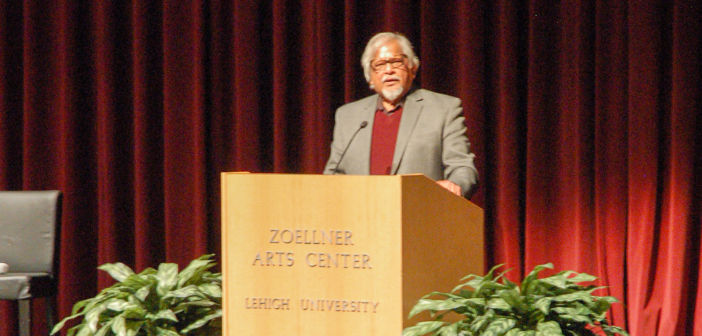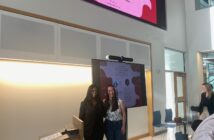Arun Gandhi, the grandson of Mahatma Gandhi, was this year’s Kenner Lecture speaker. Arun Gandhi sat down with The Brown and White for a brief question and answer session. A recap of the lecture can be found here.
Q: After living with your grandfather for 18 months, what were the most important lessons you learned?
Arun Gandhi: I think the first most important lesson is understanding anger and using that energy constructively and intelligently.
Harvard University recently did a study finding that anger generated more than 80 percent of the violence in our personal lives as well as in our national lives. If we can harvest anger and use that energy constructively we would reduce violence by almost 80 percent.
That is something I think we need to do because today we don’t want to talk about anger. If we don’t teach it, we just allow everyone to find their own way with dealing with anger, and the result is that we all end up abusing it. So we need to take this seriously and start teaching children right from kindergarten all the way to high school and even beyond about understanding anger.
The second lesson I think was very important was understanding the philosophy of nonviolence.
I always thought that nonviolence is not fighting with anyone, but I learned from grandfather that is one part of the definition. The main part is understanding how we commit violence every day and this happened through the story of a little pencil.
I was walking back home, and I threw this pencil away, and he made me go out and look for the pencil, but when I found it and brought it to him, that is when he told me that throwing away something so small like a pencil is an act of violence and that we are wasting resources.
I realized that passive violence is much more important than physical violence, because passive violence is the fuel that connects physical violence. This is why we need to be the change we wish to see. If we don’t change our habits, relationships, attitudes and wastefulness than we continue to fuel the physical violence.
Q: What inspires you to make an impact on the world around you?
AG: My experience with violence, especially when I was very young, was being touched with such hate and prejudice that I realized how society was eroding civilization. I realized that I should take the lessons I learned to the people to try to make a difference in their lives.
Q: What is one major principle that you live your life by?
AG: I try to live by nonviolence and try not to commit any passive or physical violence. I try to look for the truths, which is a very hard thing to do, but I do that as much as possible. I try to live a life full of compassion, love and respect.
Q: How do you foresee present-day students contributing to the peace process? What advice would you give the Lehigh community to foster a peaceful environment?
AG: We need to understand the definition of peace. For most people, peace is the absence of war or the absence of violence. This is not right, and this is not true because we commit violence in many ways that aren’t physical. A lot of people think peace is a destination and it’s not a place we can go. Peace is not a destination — peace is the way we live. We can create peace within ourselves or in this very moment.
Once we create peace within ourselves, there will be more peace all around us. There is not something beyond us but within us. We see ourselves selfish and self-centered and always trying to make the most money, but we don’t take much note of what is happening in the world.
This interview has been edited for length.






Comment policy
Comments posted to The Brown and White website are reviewed by a moderator before being approved. Incendiary speech or harassing language, including comments targeted at individuals, may be deemed unacceptable and not published. Spam and other soliciting will also be declined.
The Brown and White also reserves the right to not publish entirely anonymous comments.